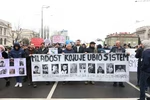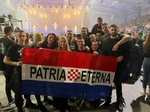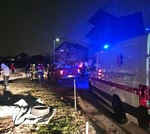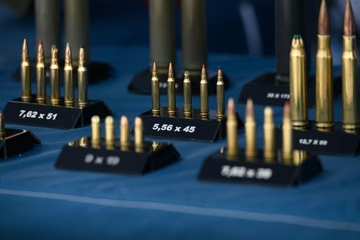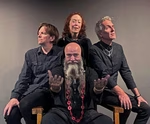Zubak: Third entity would give legitimacy to RS

The first President of the Federation of Bosnia and Herzegovina (FBiH) entity and Kresimir Zubak told N1's Amir Zukic the reason he objected to signing the Dayton Peace Agreement was that it violated the FBiH Constitution.
Oglas
Zubak, who was also the first post-war Presidency member of Bosnia and Herzegovina said that the FBiH Constitution said the FBiH consisted of areas where the Croat and Bosniak people were the majority. Those were the Posavina and East Bosnia regions. The Dayton Peace Agreement, which ended the war in Bosnia, 1992-1995, violated the FBiH constitution, therefore, he objected to signing the Constitution.
Zubak confirmed that he refused to let the Posavina and the East Bosnia regions be part of the other Bosnian entity, the Serb-dominated Republika Srpska. In the end, he signed the document when the FBiH Parliament ratified the Dayton Peace Agreement.
About a month ago, Croatian President Kolinda Grabar-Kitarovic said that Bosnia and Herzegovina is the second homeland to the Bosnian Croats. This statement surprised Zubak. He added adding he absolutely rejects such a statement.
Oglas
“I was a bit surprised by that statement because I know what she did prior to becoming president. Homeland is where one is born. Croats are born in Bosnia. That is their first homeland. The second homeland is when one moves to live abroad and stays there. Bosnian Croats are not a Croatian diaspora. I reject that statement and I think Grabar-Kitarovic made a slip of the tongue.”
Zubak also does not understand the politicians who are against a “civic state” concept for Bosnia.
“To tell you the truth, I don't understand the politicians who are in favour of the civic state, either. Everything we have now is a product of a civic state: Consensus and dual representation. All these elements are found in all other complex states. From my civic rights stems my right to declare myself as a Croat.”
N1's Amir Zukic asked why the Bosniaks and Croats are now in a sort of a conflict, and the Croats and Serbs are now partners, to which Zubak said that part of the blame for this falls on the Sarajevo-based parties, as well. RS President Milorad Dodik has reiterated plans for RS' secession referendum from Bosnia while the Croat Democratic Union's Leader Dragan Covic, as a representative of the strongest Croat party in Bosnia, is still thinking of creating the third entity in Bosnia.
Oglas
"This would bring Bosnian Croats into a bad position, and the third entity would give legitimacy to the RS," Zubak concluded.
Kakvo je tvoje mišljenje o ovome?
Učestvuj u diskusiji ili pročitaj komentare
Oglas
Kakvo je tvoje mišljenje o ovome?
Učestvuj u diskusiji ili pročitaj komentare
Oglas
NAJČITANIJE
Oglas
Oglas
Najnovije
Oglas
Oglas





 Srbija
Srbija
 Hrvatska
Hrvatska
 Slovenija
Slovenija









